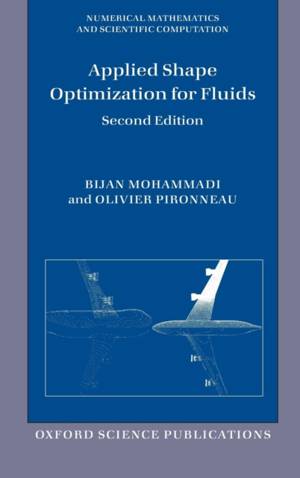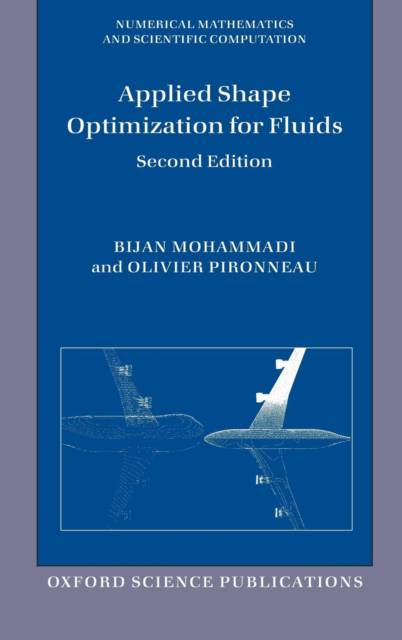
Vous voulez être sûr que vos cadeaux seront sous le sapin de Noël à temps? Nos magasins vous accueillent à bras ouverts. La plupart de nos magasins sont ouverts également les dimanches, vous pouvez vérifier les heures d'ouvertures sur notre site.
- Retrait gratuit dans votre magasin Club
- 7.000.000 titres dans notre catalogue
- Payer en toute sécurité
- Toujours un magasin près de chez vous
Vous voulez être sûr que vos cadeaux seront sous le sapin de Noël à temps? Nos magasins vous accueillent à bras ouverts. La plupart de nos magasins sont ouverts également les dimanches, vous pouvez vérifier les heures d'ouvertures sur notre site.
- Retrait gratuit dans votre magasin Club
- 7.000.0000 titres dans notre catalogue
- Payer en toute sécurité
- Toujours un magasin près de chez vous
Description
Computational fluid dynamics (CFD) and optimal shape design (OSD) are of practical importance for many engineering applications - the aeronautic, automobile, and nuclear industries are all major users of these technologies. Giving the state of the art in shape optimization for an extended range of applications, this new edition explains the equations needed to understand OSD problems for fluids (Euler and Navier Strokes, but also those for microfluids) and covers numerical simulation techniques. Automatic differentiation, approximate gradients, unstructured mesh adaptation, multi-model configurations, and time-dependent problems are introduced, illustrating how these techniques are implemented within the industrial environments of the aerospace and automobile industries. With the dramatic increase in computing power since the first edition, methods that were previously unfeasible have begun giving results. The book remains primarily one on differential shape optimization, but the coverage of evolutionary algorithms, topological optimization methods, and level set algortihms has been expanded so that each of these methods is now treated in a separate chapter. Presenting a global view of the field with simple mathematical explanations, coding tips and tricks, analytical and numerical tests, and exhaustive referencing, the book will be essential reading for engineers interested in the implementation and solution of optimization problems. Whether using commercial packages or in-house solvers, or a graduate or researcher in aerospace or mechanical engineering, fluid dynamics, or CFD, the second edition will help the reader understand and solve design problems in this exciting area of research and development, and will prove especially useful in showing how to apply the methodology to practical problems.
Spécifications
Parties prenantes
- Auteur(s) :
- Editeur:
Contenu
- Nombre de pages :
- 293
- Langue:
- Anglais
- Collection :
Caractéristiques
- EAN:
- 9780199546909
- Date de parution :
- 30-11-09
- Format:
- Livre relié
- Format numérique:
- Genaaid
- Dimensions :
- 155 mm x 234 mm
- Poids :
- 616 g







